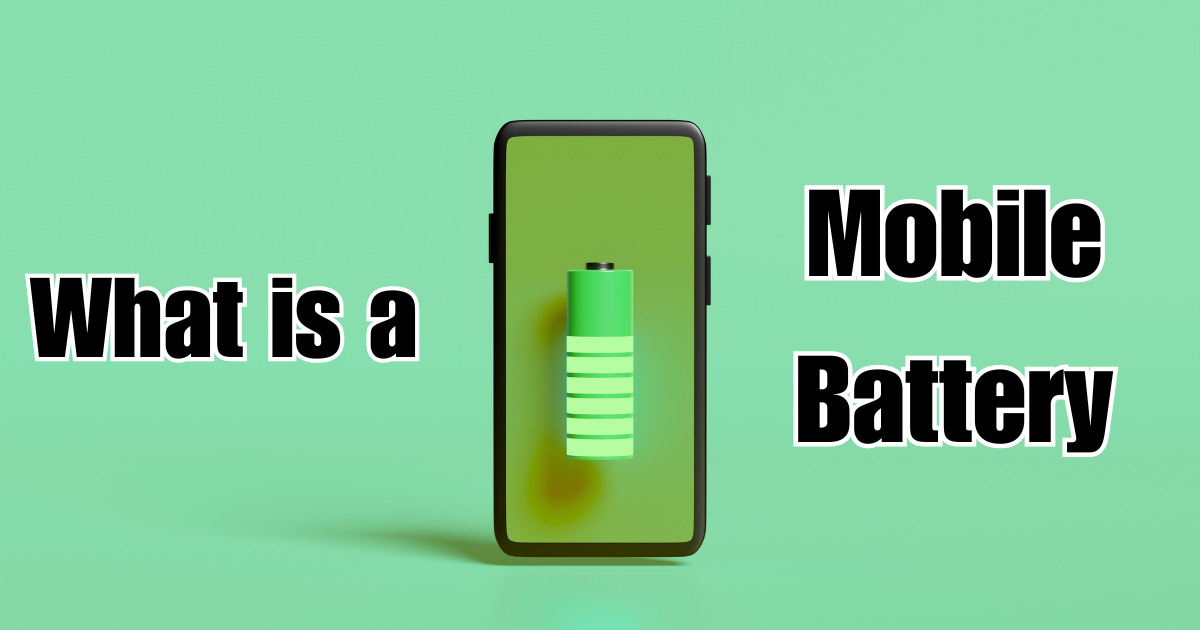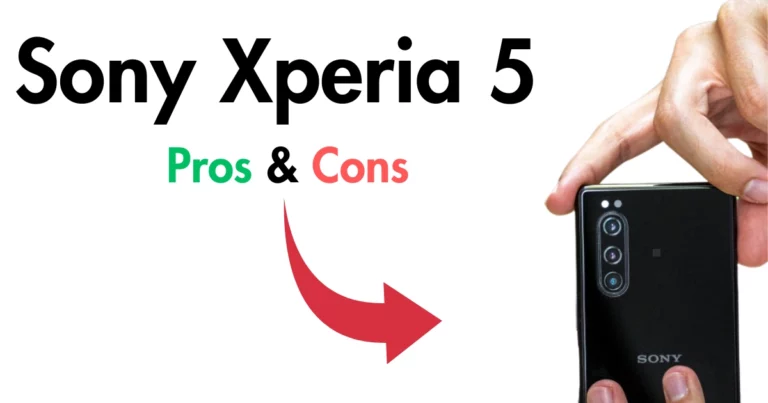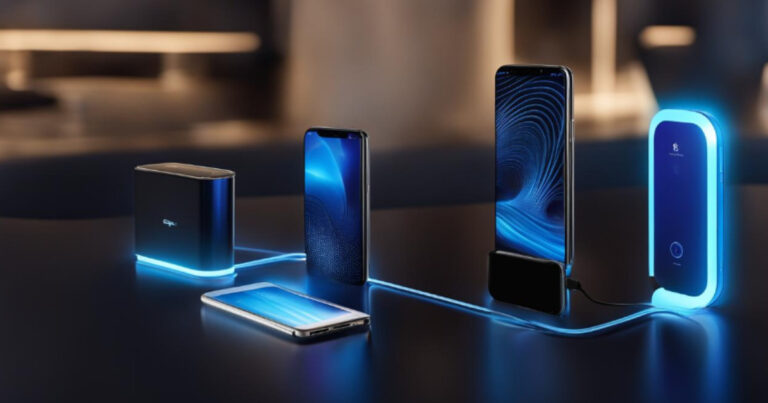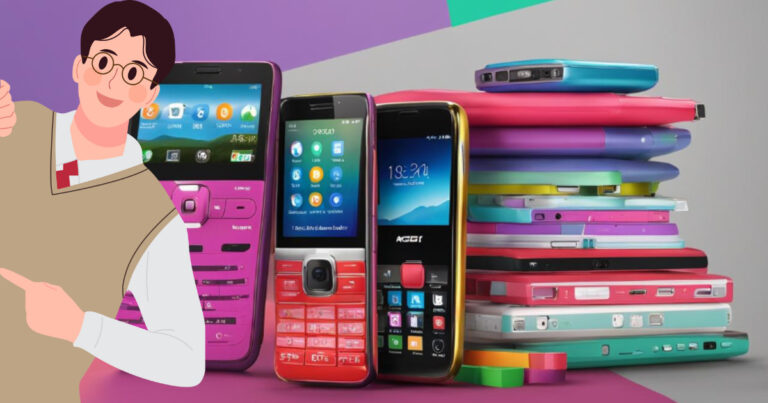What is a Mobile Battery? (Types, Tips and More)

Welcome to the world of mobile technology! In this fast-paced era, where smartphones have become an essential part of our lives, it’s important to understand the heart and soul of these devices, the mobile battery.
A mobile battery is a compact power source that enables our smartphones to function and stay connected on the go.
Think of the mobile battery as the life force that keeps our smartphones alive. It stores and supplies the required electrical energy to power the various components and functionalities of our devices.
From making calls and sending messages to browsing the internet and running apps, the mobile battery ensures that our smartphones remain operational throughout the day.
In a nutshell, the mobile battery is like the fuel tank of our smartphones, providing the necessary power to keep them running smoothly.
Without it, our devices would be nothing more than lifeless pieces of metal and glass. So, let’s delve deeper into the world of mobile batteries and discover the secrets behind their incredible power and performance.
A mobile battery is a portable power source that provides energy to mobile devices such as smartphones and tablets.
It allows users to charge their devices on the go, ensuring uninterrupted usage. These batteries come in various sizes and capacities, ranging from small power banks to larger external battery packs.
They are rechargeable and can be easily carried in bags or pockets. Mobile batteries are essential for users who heavily rely on their devices and need a reliable power backup solution.
What is a Mobile Battery?
A mobile battery, also known as a smartphone battery, is a rechargeable power source used to provide electrical energy to mobile devices such as smartphones, tablets, and smartwatches.
It is an essential component that allows these devices to function by providing the necessary power for their operation.
Mobile batteries are typically made of lithium-ion or lithium-polymer cells, which are known for their high energy density and reliability.
These batteries come in various shapes and sizes to fit different mobile devices, and they are designed to be easily removable or integrated within the device.
How does a mobile battery work?
A mobile battery works by storing electrical energy in chemical form and converting it into electrical power when needed.
Inside the battery, there are two electrodes, a positive electrode (cathode) and a negative electrode (anode), separated by an electrolyte.
When the battery is charged, ions flow from the cathode to the anode through the electrolyte, storing energy in the process.
When the mobile device is in use, the stored energy is released as a flow of electrons from the anode to the cathode through an external circuit, powering the device.
This process is reversible, allowing the battery to be recharged by applying an external electrical current that drives the ions back to their original positions.
What are the different types of mobile batteries?
There are mainly two types of mobile batteries: lithium-ion (Li-ion) and lithium-polymer (Li-poly).
Li-ion batteries are the most common and widely used type, known for their high energy density, long lifespan, and relatively low self-discharge rate.
They are found in most smartphones and other portable electronic devices.
Li-poly batteries, on the other hand, are a newer technology that offers more flexibility in terms of shape and size. They can be made thinner and lighter than Li-ion batteries, making them ideal for slim smartphones and wearable devices.
Li-poly batteries also have a lower risk of leakage and can handle high discharge rates better than Li-ion batteries.
- Lithium-ion (Li-ion) batteries
- Lithium-polymer (Li-poly) batteries
How long does a mobile battery last?
The lifespan of a mobile battery depends on various factors such as usage patterns, charging habits, and the quality of the battery itself.
On average, a mobile battery can last for about 2 to 3 years before its performance starts to degrade. However, this can vary significantly based on individual usage and charging practices.
Over time, mobile batteries gradually lose their capacity to hold a charge, resulting in shorter battery life and more frequent recharges.
Factors that can affect the lifespan of a battery include excessive heat, overcharging, deep discharging, and using high-power applications for extended periods.
Can I replace my mobile battery?
In most cases, it is possible to replace the battery in a mobile device. However, the ease of replacement depends on the specific device model.
Some smartphones have removable back covers, allowing easy access to the battery, while others have sealed designs that require professional assistance for battery replacement.
If your mobile battery is not performing well or no longer holding a charge, it is recommended to contact the device manufacturer or a professional technician to inquire about battery replacement options.
They can guide you on whether the battery can be replaced and provide information on authorized service centers or authorized battery resellers.
How can I extend the battery life of my mobile device?
To extend the battery life of your mobile device, you can follow these tips:
- Reduce screen brightness or use automatic brightness settings.
- Turn off Wi-Fi, Bluetooth, and GPS when not in use.
- Close unnecessary background apps and restrict app refresh.
- Enable power-saving mode or battery optimization settings.
- Limit push notifications and adjust email and app sync settings.
- Avoid extreme temperatures, as they can impact battery performance.
- Avoid overcharging or letting the battery drain completely.
By implementing these practices, you can optimize your device’s battery usage and potentially extend its overall lifespan.
Are there any risks associated with mobile batteries?
While mobile batteries are generally safe to use, there are some risks associated with them:
- Overheating: Excessive heat can cause a mobile battery to malfunction or even explode. Avoid exposing your device to high temperatures and never use or charge a device with a swollen or damaged battery.
- Leakage: If a battery is damaged or punctured, it can leak hazardous chemicals. If you notice any signs of leakage, such as unusual odors or discoloration, handle the device with caution and seek professional assistance.
- Counterfeit batteries: Using counterfeit or low-quality batteries can pose safety risks. Always purchase batteries from reputable sources and avoid buying cheap or unbranded batteries.
It is important to handle and use mobile batteries with care, following the manufacturer’s instructions and guidelines to minimize any potential risks.
A mobile battery is a vital component in smartphones, tablets, and laptops, providing the necessary power for their operation.
These batteries, typically lithium-ion or lithium-polymer, vary in capacities and lifespans influenced by usage, charging habits, and temperature.
Choosing quality batteries and proper care are essential for safety and maximizing device performance.





